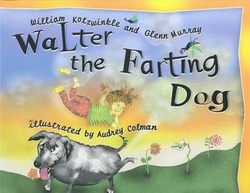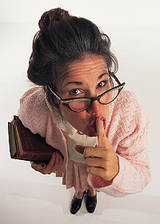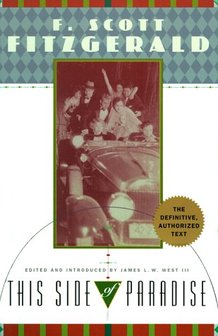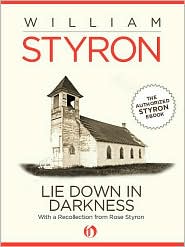|
The link to the following blog post came over the transom courtesy of ISLMA (the Illinois School Library Media Association) listserv: 10 Things I Hate About the Library And being a school librarian who works with young children every day, I of course felt the need to reply, measure for measure, ala Liz Phair to the Rolling Stones, Exile in Guyville to Exile on Main Street: 1. The Stress: Oh please. With free access to books and CDs, and minimal (if any) fees on DVDs, the library is a bargain that is worth the time, effort and stress to help children keep track of their borrowings. Try using a designated book bag; teach children to keep their library books in a special place (nightstand, corner of the bedroom, chair) when they are not reading them. This is an organizational skill they will need early on in school and use 4-EVER! 2. Late and Replacement Fees: a small price to pay. See above suggestions. Always get a checkout receipt and post it somewhere prominent -- refrigerator, calendar, front door, garage door. 3. The Grossness: exposure to germs can be a good thing -- builds the immune system. And, believe it or not, librarians do wipe down books and/or pull them out of circulation as necessary. Your little darling will not catch the flu or dysentery checking out a library book. 4. Keeping Kids Quiet: Again, oh please. Stereotype! The majority of libraries have designated children's areas and I have never seen a posted "Quiet Zone" in any of them. 5. Keeping Kids Still: Children's librarians expect some noise and exuberance. We have been known to dance in the aisles ourselves upon finishing a particularly excellent book -- Scaredy Squirrel or a classic Dr. Seuss, anyone? As long as the children are not hurting themselves or putting others in danger, I think you are okay with movement. Sorry, but we do draw the line at bungee-jumping off the top of the shelving units. 6. The Books My Kids Choose: Well, kids are generally receptive to guidance in this area. But the deaths of pets and divorce are facts of life and reading about these sad circumstances allow children to experience the emotions surrounding these events safely and/or find comfort and confirmation in a fictional character's response.  As for farting, well, it is a natural process and two absolute favorites on this topic are Walter, the Farting Dog and the based-on-a-true-story Fartiste. If you can't beat 'em, join 'em. And have you seen what's playing at the multiplex lately? The gross-out, "adult" humor in the movie of Judd Apatow should be so entertaining as these children's books! 7. The Smell: This blogger must be going to a really old library. Well, sorry. Would she prefer the formaldehyde-laced scent of a Glade Plug-In? 8. The Scowling Librarian: Oh PLEASE! STEREOTYPE!! CLICHE!!! I could say "nuff said," but I shall continue.  Librarian --- NOT! Children's librarians are some of the most patient and friendly people you'll ever meet. It is a requirement of employment that you be cheerful, kind, patient, helpful ... sort of like Mary Poppins without the spoonful of sugar and the flying umbrella. 9. The Lack of a Starbucks: So while she's off sipping her coffee at Barnes and Noble, where are the kiddies? Tearing up the picture book aisle? Knocking over the New Nonfiction displays? 10. Reading. Hmmmmmm... I guess I will tackle this "other post" later... for "tomorrow is another day!"
0 Comments
Clued in or clueless? You decide.
Synopsis provided to literary agent: The Flipside of Heaven chronicles the life of Justin Loutman from his childhood up through his early twenties. Born the son of a wealthy and sophisticated woman, Alexis, Justin travels the country with his mother until he attends the St. Blaine Academy prep school in a tony North Shore suburb of Chicago. He is handsome, quite intelligent, though lazy in his schoolwork, and, through his mother’s connections, he earns admission to the University of Chicago. Though initially concerned with being a success on campus, after failing a class, he gives himself over to idleness; he prefers to learn through reading and discussions with friends than through his classes. Toward the end of his college career, America is at first shattered, then united by the event of September 11, 2001. When his country enters into wars in Iraq and Afghanistan, Justin, seized by patriotism, enlists, forgoing his degree. During his tour of duty, Alexis dies. Upon his return to America, Justin meets the young reality show star and minor celebrity, Kendra McClarren, the sister of his college friend, Trip. The two fall in love, but because of the stock market crash and his family's poor investments, Justin has little money, and Kendra does not wish to marry a slacker without the means to contribute support to her chosen life style. Despite Justin's best efforts to earn money at an Internet start-up music-sharing site, Kendra breaks off their engagement in order to marry a wealthier man, devastating Justin. He goes on a three-week coke and alcohol binge, which is finally terminated by his arrest for public indecency. Justin's quest for self-knowledge begins. He has a short summer romance with the wild Kaitlyn. Soon after, Trip is caught up in a scandal involving the underaged daughter of a Chicago politician, and Justin takes the blame. Justin then discovers that his last close tie, the dear friend of his mother and his father figure, Dr. Gerson, has passed away. Further, the recession and collapse of the Internet start-up have left him almost no money. After attending the funeral in Wisconsin, he decides to hitchhike back to the University of Chicago to try to start again. As he stumbles through the North Shore he is picked up along the way by the wealthy father of a friend who died in Iraq. Justin expounds his new socialist principles and then continues to walk to the university. He arrives late at night, pining for Kendra. Justin reaches his hands to the sky, realizing he knows nothing but himself. Agent's response: Thank you for thinking of me with your query for THE FLIPSIDE OF HEAVEN. While this sounds like a strong project, I'm afraid it doesn't strike me as a likely fit with me and my particular editorial contacts. I wish you well in finding the right agent for your work. Reality: This is essentially a plot summary of F. Scott Fitzgerald's first novel, This Side of Paradise. Guess it just doesn't fit that old list. Did they get the joke or were they just clueless? You decide.
Recent novel pitch to a literary agent: Horizontal in the Dark: This novel tells the story of the disintegration of a Los Angeles family, the Morgenthalers. Richard Morgenthaler is an alcoholic lawyer in his early 50s who once had political ambitions. His wife, Jennifer, is the daughter of wealth. They have two daughters: Ashley, who is mentally-impaired and disabled, and Britney, beautiful and intelligent and doomed. Ashley is Jennifer's favorite; Richard forgets she even exists. Britney is the target of Jennifer's powerful loathing and Richard's overbearing affection ... if it can be called that. Richard and Jennifer have an awful marriage, marked by recriminations, bitterness and fear. For a time, Richard finds solace in his mistress, Tracie Hatchett. Hounding them all is a foreboding sense of godlessness. The immediate setting is Britney's funeral, after her suicide. But the conflicts between the narcissistic, alcoholic father and the emotionally disturbed mother, the hate between mother and daughter, and the near incestuous love of the father for Britney - all contributors to the characters' disillusionment and the suicide itself - are unfolded in flashbacks. Though the story is told in third person, the final section is an intense monologue recited by Britney before she flings herself off a cliff on the Palos Verdes peninsula. Agent's reply: Dear Author, Thank you for contacting ******* about representation. Unfortunately, we are unable to offer you representation at this time. Due to the large number of submissions ******* receives, ***** is forced to be extremely selective when considering new clients. After reflection, we don’t feel that this is a perfect fit for **********’s list. Publishing is very subjective, however, and another agent may well feel differently. I sincerely apologize for the impersonal nature of this reply—we receive hundreds of submissions a month. Thank you again for thinking of *************. We wish you all the best of luck in the future. Reality? The pitch was the plot summary for William Styron's debut novel, Lie Down in Darkness, which was critically acclaimed when it was published in 1951 and won the Prix de Rome from the American Academy in Rome, a prestigious literary award. Guess it wouldn't get published today. |
AuthorTo find out more about me, click on the Not Your Average Jo tab. Archives
February 2024
Categories
All
|



 RSS Feed
RSS Feed